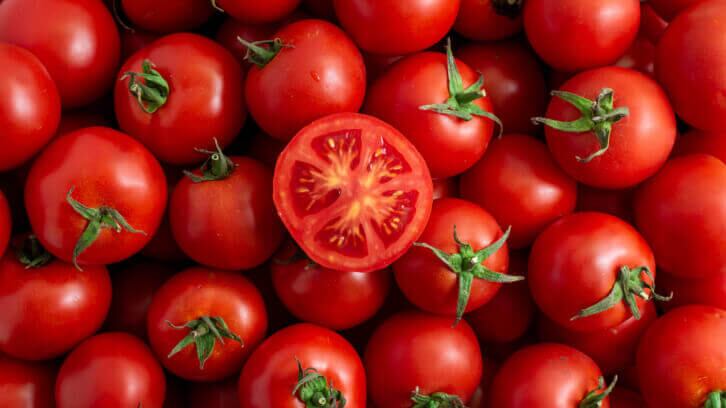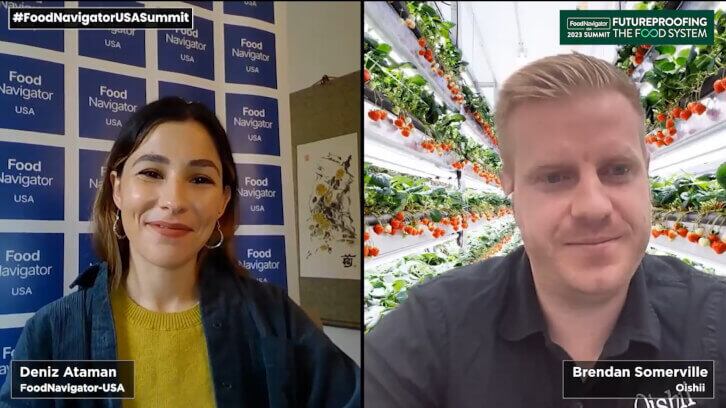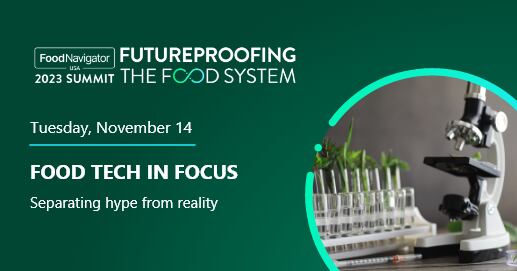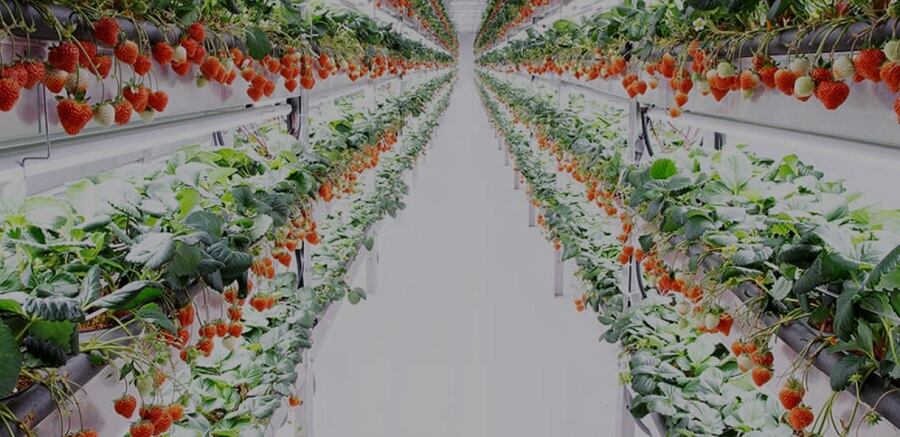Retailed at $9.99 for a tray of 11 non-GMO, pesticide-free tomatoes, Rubī is characterized as a balanced blend of sweet, acidic and umami flavors, according to the company.
“Red is our favorite color at Oishii. The Rubī is the sweetest tomato you will ever taste and builds on what we started with our delicious strawberries: We’re on a mission to redefine how we experience fresh fruit,” said Hiroki Koga, Oishii’s CEO and co-founder in a statement.
Focusing on producing a consistently sweet and eye-appealing strawberry year-round, Oishii launched its first strawberry, The Omakase Berry, in 2018 which is characterized by its sweet, aromatic and creamy texture, followed by the launch of The Koyo Berry earlier this year, which is known for its balanced sweet and acidic flavors.
Whole Foods has served as the company’s primary retailer, particularly along the northeast coast to stores in DC, Maryland, Massachusetts and New Jersey. Eight months after Oishii launched the Koyo Berry at Whole Foods, it increased its supply in stores by 600% and and expects to double supply by January 2024, according to the company.
Oishii’s varietals are grown in its 74,000 indoor vertical farm, Mugen Farm outside of New York City, highlighting indoor agriculture’s potential to use space efficiently in urban areas and provide more local access to fresh produce.
Building an ecosystem for flowering crops
While leafy greens, which are harvested whole, are indoor farming’s most popular crop, Oishii sets itself apart in the sector by producing flowering crops, which require light rain, mild temperatures and pollination. Tomatoes, which have both male and female reproductive systems, are self-pollinating; whereas strawberries require bees, which Oishii provides in its ecosystem.
Using Yaskawa’s robotic arms in conjunction with Oishii’s technology capabilities which controls crop management algorithms, environmental controls and energy monitors, the vertical farm’s automated capabilities emit 60% less energy and 40% less water than its first-gen facilities, according to data from Produce Blue Book.
Oishii’s automated system allows for the vertical farm to control temperature, light, nutrients and humidity to modify a consistent shape, size, taste and appearance of its strawberries and tomatoes.
“We’re huge believers that vertical farming is the answer to the future of agriculture; it allows us to grow great-tasting produce in a way that’s better for people and better for the planet. But this technology will only take root if we can grow complex fruits and vegetables – like strawberries and tomatoes – efficiently and at scale. With the Rubī and The Koyo Berry, we’re here to show that this future is here today,” Koga added.




